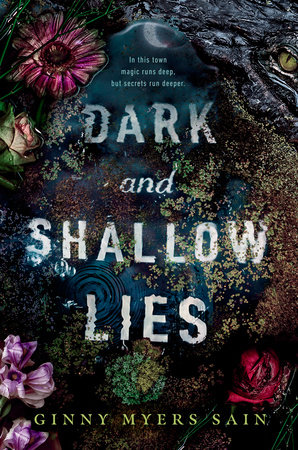
To be totally honest, the premise of Dark and Shallow Lies by Ginny Myers Sain didn’t really catch me. Setting-heavy fiction isn’t something that particularly appeals to me, and the witchy small-town Louisiana setting is a major selling point of this one. Still, I had to read it for work so I did. Considering that the last two books I had to read for work were All of Us Villains by Amanda Foody and Christine Lynn Herman and Tomorrow and Tomorrow and Tomorrow by Gabrielle Zevin, Dark and Shallow Lies had a lot to live up to. Unfortunately, I’m not sure it did. It’s fine, but it’s nothing to write home about.
What’s it about?
Grey was born in La Cachette, Louisiana, a town full of psychics and secrets, but after her mother’s death she lives with her father and returns to La Cachette only in the summertime. This summer is different, however; her best friend (and “twin flame”) Elora has disappeared and is presumed dead even though no body has been found. Grey, spurred on by what are possibly psychic visions of the night Elora disappeared, becomes obsessed with solving the mystery of Elora’s disappearance… and, with it, the drownings of two other children a decade before.
What’d I think?
I liked the setting. As I said above, I don’t personally care all that much about setting. I’m not a visual person and I’ve moved often enough that to me, one place is pretty much like another. Even with that in mind, I can see that Sain did a good job with La Cachette. The town’s closeness and culture absolutely inform the story, and give it a distinct feeling. The mysteries could not occur in the same way anywhere else, because they are tied inextricably to both the magic of the town and the tight-knit, claustrophobic community. The thin lines between truth and fiction further feed the confusion, and Sain’s brief inclusion of Cajun culture and Louisiana dialect are welcome.
I liked the pacing. I expected Dark and Shallow Lies to be a fantasy novel, but it reads like a thriller. I thought the magical powers were going to play a bigger part, and while they’re important they contribute more to the overall vibe than the plot. As Grey investigates Elora’s disappearance, she uncovers secret after unsettling secret, many of which ask her to reevaluate the things she knew best: the intentions of people she loves, the lore of her town, even her relationship with Elora. The story builds bigger with each chapter, and there’s never long between twists, meaning that this is a novel that keeps you reading. I wanted to read through this quickly because book club was looming and I hadn’t even started that book yet, but I was able to make it through this one in a day and a half because it is so fast-moving and exciting.
I didn’t like the obviousness of some of the false leads. This point doesn’t need much farther elaboration, but I’m going to give some anyway. Grey chases down some leads that I could tell immediately were red herrings. I always like when the author lays a track that the reader can follow if they’re paying attention, but this was a little too easy. One of the biggest *gasp here* moments was something I’d predicted in the first few chapters, and I was unshakably onto the most suspicious players long before Grey turned any attention towards them. I narrowly missed predicting the actual murderer, but I’ll get into that in the marked spoiler section.



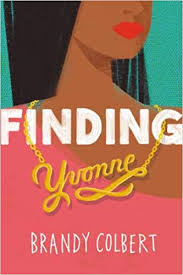 Finding Yvonne by Brandy Colbert has all the elements needed to be a great read, and while I did like it quite a lot, I didn’t love it as much as the set-up suggested I might.
Finding Yvonne by Brandy Colbert has all the elements needed to be a great read, and while I did like it quite a lot, I didn’t love it as much as the set-up suggested I might.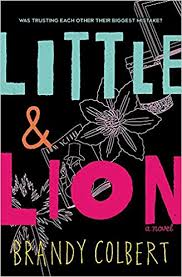 I liked
I liked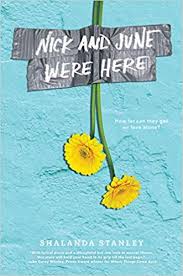 I have mixed feelings about Nick and June Were Here by Shalanda Stanley. It’s a pretty standard YA romance in terms of how much I liked versus how much I didn’t like, even though that are elements of the novel (specifically June’s situation) that I haven’t seen elsewhere in fiction. It comes close to being an excellent book, but unfortunately it’s too committed to its central romance to realize that it’s the weakest part of the book.
I have mixed feelings about Nick and June Were Here by Shalanda Stanley. It’s a pretty standard YA romance in terms of how much I liked versus how much I didn’t like, even though that are elements of the novel (specifically June’s situation) that I haven’t seen elsewhere in fiction. It comes close to being an excellent book, but unfortunately it’s too committed to its central romance to realize that it’s the weakest part of the book.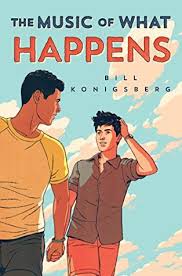 The Music of What Happens is the second novel by Bill Konigsberg that I’ve read—the first being
The Music of What Happens is the second novel by Bill Konigsberg that I’ve read—the first being 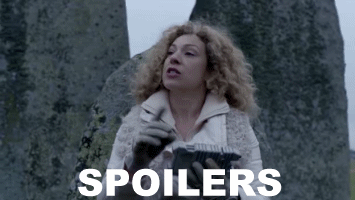
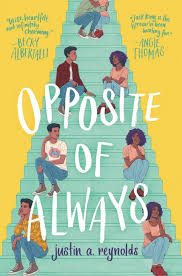 When it comes to contemporary YA writers, there aren’t many better than
When it comes to contemporary YA writers, there aren’t many better than